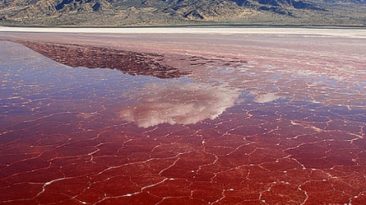Would you like to live forever? That may not be possible yet. But what if I told you your body could technically last for 150 years? What should you do to live that long? Why would you need to rethink all of your habits? And how would the world change if everyone had a long life?
The oldest person who’s ever lived was a French woman Jeanne Calment. She passed at the age of 122 years and 164 days. That’s way more than the global average life expectancy of 72.6 years. And even that is optimistic for men living in central Africa, whose life expectancy is 51 years. So what’s the secret to living a long life? One recent study put it simply.
We need to remove the usual stressors related to aging, such as diseases and accidents. And we need to figure out ways to replace body parts, faulty organs and tissues, just like we do with our cars. Let’s say we already have that covered, and everyone can live for 150 years. Now what?
We’d have some significant issues to figure out. The most pressing would be food. With people living longer, we could expect population growth and more mouths to feed in a world that already faces a food gap. The most obvious solution would be to reduce food waste. About 25% of food produced goes uneaten.
We could also think about other ways of farming, such as city gardens or urban rooftops. These would come in handy, especially if we consider that our food production is not sustainable. It contributes to about 30% of greenhouse gas emissions and takes up to 40% of our land. And we’d need some of that land to make room for the growing population.
We might also need to consider a plant-based diet. That’s because beef is more resource-intensive to produce and requires 20 times more land than plant-based proteins. It’s also inflammatory, which can work against our plans to live longer. But you wouldn’t need to go full-on vegan. Fish, seafood and eggs provide some important nutrients.
So you would have to include those in your diet. You’d also need to add in a few years of work. That way, everyone would contribute to the economy, increase tax revenue for pensions and keep a sense of purpose. Believe it or not, working for a few more years may have its benefits. With more people needing work, the workweek could be four days.
Or the workday may be shorter. And a longer work life would allow you to make more career changes to stay fulfilled. Do you know what else you’d likely be switching a lot? Romantic partners. On average, a marriage lasts seven years. If everyone lived for 150 years, it might be more reasonable to have multiple marriages than stick with the same person for 120 years.
On the other hand, you’d probably have fewer children, and they’d come later in life. The oldest woman to give birth was 73 years old. This might be the new age for women to have their kids if we live for 150 years. Animals that live longer tend to have fewer offspring, so that may end up being the case with us.
If we think about the size of the population, having fewer children might also make more sense in the long term. Living for 150 years might seem far-fetched. But it’ll likely be a reality soon. If we make the changes needed to have resources available for everyone, it could be pretty cool.
Imagine how many times you could reinvent yourself? And all the things you could see and experience with so many years of life? Maybe you’d even live long enough to see the age of human space travel.
Sources
- “Life Expectancy”. Roser, Max, Esteban Ortiz-Ospina, and Hannah Ritchie. 2013. ourworldindata.org.
- “Longitudinal Analysis Of Blood Markers Reveals Progressive Loss Of Resilience And Predicts Human Lifespan Limit”. Pyrkov, Timothy V., Konstantin Avchaciov, Andrei E. Tarkhov, Leonid I. Menshikov, Andrei V. Gudkov, and Peter O. Fedichev. 2021. Nature Communications 12 (1). doi:10.1038/s41467-021-23014-1.
- “What Is The Maximum Human Lifespan?”. Gunnar De Winter. 2021. Medium. medium.com.
- “Study Suggests 150 Years May Be The Human Lifespan’s Upper Limit”. Alex Fox. 2021. smithsonianmag.com.
- “What Living To 150 Might Look Like”. Robin Seaton Jefferson. 2020. forbes.com.



























